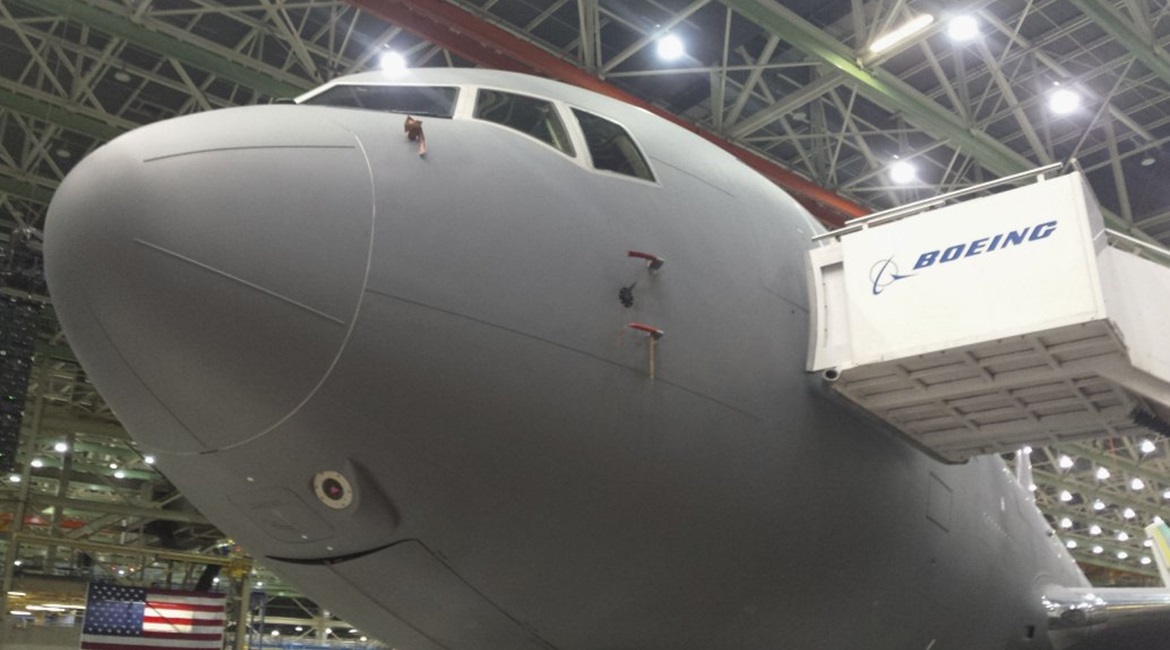
The Pentagon’s top acquisition executive blames the Boeing KC-46A Pegasus aerial refuelling tanker’s fixed-price contract structure for the programme’s ongoing issues.
Senator Jeanne Shaheen of New Hampshire said during a 1 October hearing that Boeing cancelled a 2 October KC-46A delivery to the 157th Air Refueling Wing (ARW) in New Hampshire due to electrical problems with the aircraft. Ellen Lord, under secretary of defense for acquisition and sustainment (A&S), said in response that the root cause of the KC-46A’s problems is the contract type that was awarded to Boeing.

A KC-46A pictured on 24 January 2019. The Pentagon’s top acquisition executive blamed the KC-46A’s fixed-price contract structure for the programme’s ongoing issues. (Janes/Pat Host)
Lord said that one issue is the technical solution that was the aircraft’s original design, which is now being redesigned. The programme, she said, also has a myriad of manufacturing issues including ongoing foreign object debris (FOD) problems. The programme, Lord said, has an engineering design and execution issue as well as a manufacturing problem.
Boeing’s fixed-price contract structure, previously lauded as an example of improved government contracting, means the company pays the Pentagon for cost overruns. The contract structure was considered an improvement over cost-plus contracting, where the government reimburses the contractor for cost overruns.
One expert said that Boeing paying for cost overruns on the KC-46A disincentivises the company from improving its performance. Doug Birkey, Mitchell Institute for Aerospace Studies executive director, told Janes
Looking to read the full article?
Gain unlimited access to Janes news and more...






